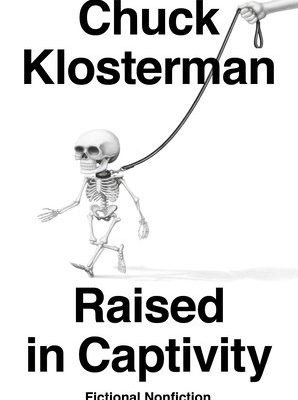Navigating the Dark Web of
On the Fine (and Difficult) Art of Science Writing
Randi Hutter Epstein: When Even Science Isn't An Exact Science
How Contemporary Poetry Treats the Old Myths of the American Railroad
Thomas Dai on the Poems of Kai Carlson-Wee and Jenny Xie
‘Fatal Light Awareness,’
A Poem by Margaret Atwood
With Photographs by Owen Deutsch from Bringing Back the Birds
How to Taste Chocolate Like an Expert
Just Because It's Expensive Doesn't Mean It's Good
The Author of My Sister, the Serial Killer on Violence, Beauty, and Poetry
Oyinkan Braithwaite on Reading Women with Kendra Winchester and Autumn Privett
Mukoma Wa Ngugi: On the Poem That Made Me Fall in Love with Words
A Close Reading of Sonia Sanchez's "Poem at Thirty"
Steve Almond on Interesting Writing: “My Job is For it Not to Be a Trick”
In Conversation with Brad Listi on Otherppl
“If Something Is Free the Product Is You”
Chuck Klosterman
"I think about that screwdriver every day. I think about it more than I think about my parents. Most of my dreams involve screwdrivers, or at least the dreams I can remember. Sometimes I walk into a hardware store and just stare at all the screwdrivers displayed on the wall. It’s like looking at pornography, minus that moment of release when whatever you’ve been looking at explosively becomes absurd. There are lots of reasons screwdrivers are different from vaginas, but that’s one nobody ever talks about."
Lit Hub Daily: July 16, 2019
THE BEST OF THE LITERARY INTERNET
Kevin Alexander on the Funny, Unflinching, Cooking Memoirs You Need to Read
The Best Memoirs from the Back of the House
In Which Colson Whitehead is Highly Concerned with the Exploration of Inner Space
And How Does Whitehead Defeat Writer's Block? Tackle the F*cker.
What Hemingway Cut From For Whom the Bell Tolls
An Epilogue, For Starters
How Space Technology is Revolutionizing Archaeology
Sarah Parcak on Finding the Past in Satellite Imagery
On a Radical Model of Education: The Free School
Nora Samaran Reveals the Politics of Nurturance
Brazil’s History Is Ahead of It, Not Behind
Geovani Martins on Finding Joy in a Beautiful, Struggling Nation
Page 1384 of 1878





